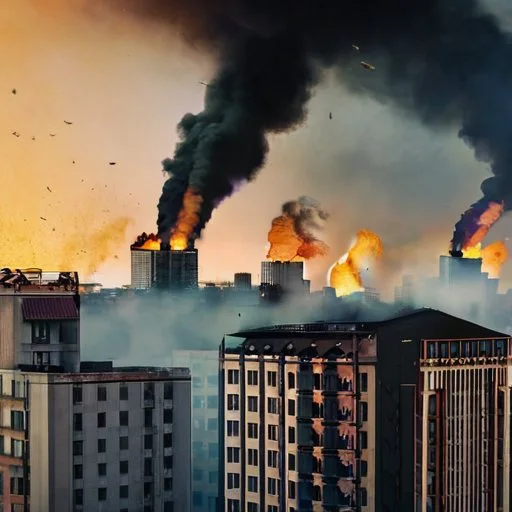The September 11 attacks, a series of coordinated terrorist attacks, will forever be etched in the minds of people around the world as a day of unimaginable horror and tragedy. On that fateful day in 2001, 19 al-Qaeda terrorists hijacked four commercial airplanes, intentionally crashing two into the iconic World Trade Center in New York City, one into The Pentagon in Arlington, Virginia, and one, which crashed in a Pennsylvania field after passengers attempted to overcome the hijackers.
It was a typical Tuesday morning in the United States, with people going about their daily business, unaware of the unprecedented disaster that was about to unfold. At 7:59 a.m., American Airlines Flight 11, a Boeing 767 aircraft, took off from Logan International Airport in Boston, bound for Los Angeles International Airport. Fifteen minutes later, United Airlines Flight 175, also a Boeing 767, followed suit from the same airport. Both flights were hijacked by terrorists, who then intentionally crashed them into the North and South Towers of the World Trade Center at 8:46 a.m. and 9:03 a.m., respectively.
The attacks on the World Trade Center resulted in the collapse of both towers, with over 2,700 people killed. The impact and subsequent fires caused by the crashes led to the collapse of the South Tower at 9:59 a.m. and the North Tower at 10:28 a.m. The attacks on the World Trade Center also damaged several surrounding buildings, including 7 World Trade Center, which collapsed later that day.
In addition to the attacks on the World Trade Center, American Airlines Flight 77, a Boeing 757 aircraft, was hijacked and crashed into The Pentagon in Arlington, Virginia, at 9:37 a.m., killing 184 people. United Airlines Flight 93, a Boeing 757 aircraft, was also hijacked, but passengers attempted to overcome the hijackers, leading to the plane crashing into a field in Shanksville, Pennsylvania, at 10:07 a.m., killing all 40 passengers and crew members on board.
The September 11 attacks were orchestrated by Osama bin Laden, the founder of al-Qaeda, a global militant Islamic extremist organization. Bin Laden, who was killed in a raid by US Navy SEALs in 2011, had publicly declared war on the United States and its allies, citing grievances against Western imperialism and the presence of American troops in Saudi Arabia during the Gulf War.
The September 11 attacks had a profound impact on international relations, global security, and American society. The attacks led to the launch of the War on Terror, a global military campaign led by the United States, with the aim of combating terrorism and extremism. The attacks also led to the invasion of Afghanistan, where al-Qaeda was based, and the Iraq War, which was launched in 2003.
In the aftermath of the attacks, the USA PATRIOT Act was passed, expanding the authority of law enforcement agencies to gather intelligence and conduct surveillance on individuals and organizations suspected of terrorism. The attacks also led to a significant increase in security measures in the United States, including the creation of the Department of Homeland Security and the Transportation Security Administration.
The September 11 attacks claimed the lives of 2,977 people, including 343 firefighters and 71 law enforcement officers. The victims came from over 70 countries and included people from all walks of life. The attacks also injured over 6,000 people and caused widespread damage to property and infrastructure.
In the years following the attacks, several memorials and tributes have been dedicated to the victims, including the National September 11 Memorial & Museum in New York City, the Flight 93 National Memorial in Shanksville, Pennsylvania, and the Pentagon Memorial in Arlington, Virginia. These memorials serve as a poignant reminder of the lives lost and the sacrifices made on that fateful day.
The September 11 attacks will forever be remembered as a day of tragedy and loss, but also as a testament to the resilience and bravery of the American people. As we reflect on that fateful day, we honor the memories of those who were lost and reaffirm our commitment to standing against terrorism and extremism in all its forms.
The hijackers who orchestrated the 9/11 attacks were led by Mohamed Atta, a 33-year-old Egyptian national. Atta was a skilled pilot and a devout Muslim who had become increasingly radicalized in the years leading up to the attacks. He was joined by 18 other hijackers, each with their own unique backgrounds and motivations.
Ramzi bin al-Shibh, a 29-year-old Yemeni national, was another key figure in the plot. He had attempted to obtain a visa to enter the United States in 2000, but was rejected. Despite this setback, he continued to play a crucial role in planning and coordinating the attacks.
The hijackers were a diverse group, hailing from countries such as Egypt, Saudi Arabia, and the United Arab Emirates. They were united by their extremist ideology and their desire to inflict maximum harm on the United States.

The 9/11 attacks occurred at a time of great geopolitical tension, with the United States facing opposition from a range of terrorist organizations and rogue states. The attacks were seen by many as a dramatic escalation of the global war on terror, which had been ongoing since the 1990s.
The Bush administration's response to the attacks, including the invasion of Afghanistan and the launch of the War on Terror, was shaped by a range of geopolitical factors, including the need to protect American interests and to assert US dominance in the face of rising threats from extremist groups.
The attacks also had significant implications for international relations, leading to a major shift in the global balance of power and the emergence of new global security structures.
The 9/11 attacks had a profound impact on American culture, leading to a renewed sense of patriotism and national unity. The attacks also led to a surge in volunteering and charitable giving, as Americans came together to support the victims and their families.
In the years following the attacks, there was a significant increase in the production of 9/11-related media, including films, books, and documentaries. These works helped to shape the public's understanding of the attacks and their aftermath.
The attacks also had a lasting impact on the arts, with many musicians, writers, and artists responding to the tragedy through their work.

The 9/11 attacks had a devastating impact on the US economy, with the immediate costs of the attacks estimated at over $2 trillion. The attacks also led to a significant decline in air travel and tourism, with many businesses suffering major losses.
In the years following the attacks, the US government launched a range of initiatives aimed at stimulating economic growth and recovery. These included tax cuts, increased government spending, and a major overhaul of the financial regulatory system.
The attacks also led to a significant shift in the global economy, with many countries adopting new security measures and increasing their military spending.
The 9/11 attacks generated a vast array of artifacts, including documents, videos, and physical objects. These artifacts provide a unique window into the events of that day, and have been carefully preserved and analyzed by historians and researchers.
One of the most significant artifacts from the attacks is the "9/11 Commission Report", a detailed investigation into the planning and execution of the attacks. The report provides a comprehensive overview of the events leading up to the attacks, as well as the response of the US government.
Other important artifacts include the cockpit voice recorders from the hijacked planes, which provide a chilling insight into the final moments of the flights.